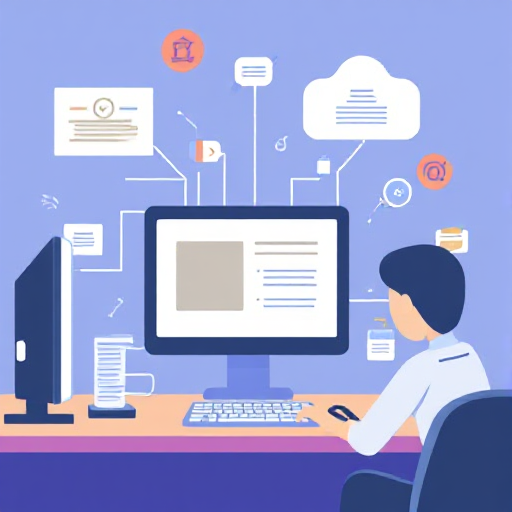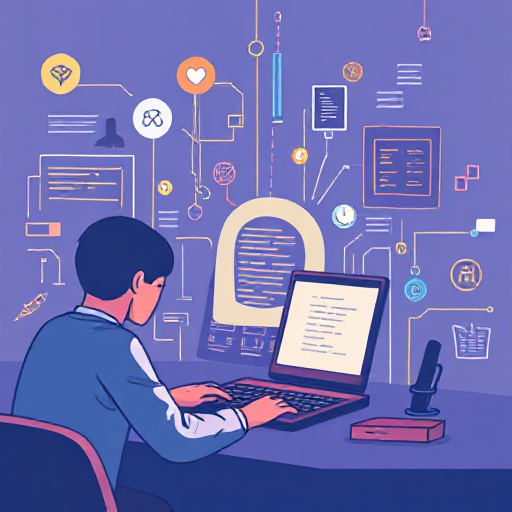
In today’s digital world, coding has become a valuable skill for anyone interested in technology, entrepreneurship, or simply enhancing their career prospects. Whether you aim to build websites, develop mobile apps, or pursue a career in data science, learning to code opens up numerous opportunities. But with so many resources and languages to choose from, you might wonder, “What is the fastest way to learn coding?”
The answer varies depending on your learning style, goals, and time commitment, but the following strategies are effective ways to speed up the process.
1. Choose the Right Programming Language
The first step in learning coding is selecting a programming language. Different languages serve different purposes, so it’s important to choose one that aligns with your goals. Here are some suggestions:
- For Web Development: Start with HTML, CSS, and JavaScript. HTML and CSS form the foundation of web development, while JavaScript brings interactivity to websites.
- For Mobile App Development: Learn Swift (for iOS) or Kotlin (for Android). Both languages are optimized for building mobile applications.
- For General Purpose or Backend Development: Python and Java are great choices due to their readability and widespread use in areas like web development, data science, and artificial intelligence.
- For Game Development: C++ and C# are dominant languages in this space, especially when working with game engines like Unreal Engine and Unity.
By focusing on one language at the start, you can avoid feeling overwhelmed and quickly build your skills in that specific area.
2. Focus on Core Concepts
While each programming language has its syntax and unique characteristics, many coding concepts are universal. These core concepts include:
- Variables and Data Types: Understanding how to store and manipulate data is crucial in any programming language.
- Control Structures: Learn how to use loops, conditionals (if-else), and switch statements to control the flow of your programs.
- Functions: Functions allow you to break down complex problems into smaller, reusable code blocks.
- Object-Oriented Programming (OOP): Familiarize yourself with OOP principles like classes, inheritance, and polymorphism, which are common in languages like Python, Java, and C++.
- Algorithms and Data Structures: These are foundational topics for understanding how to efficiently solve problems and organize data.
Focusing on these core concepts will give you a solid foundation in coding and help you learn new languages more easily in the future.
3. Take an Intensive, Structured Course
One of the fastest ways to learn coding is through an intensive, structured course. Whether online or in-person, these courses provide a guided approach that ensures you learn efficiently. Some well-known platforms for online courses include:
- FreeCodeCamp: Offers free, comprehensive coding bootcamps for web development, data science, and more.
- Codecademy: Provides interactive lessons in several programming languages, from beginner to advanced levels.
- Udemy: Features a variety of coding courses, often with lifetime access, allowing you to learn at your own pace.
- Coursera: Offers courses from universities like Stanford and MIT, often culminating in certificates that can be added to your resume.
- edX: Another platform that provides courses from universities, including Harvard and MIT, and is a great option for those looking for a more academic approach.
These platforms typically provide hands-on coding practice, quizzes, and projects that help you build a portfolio while learning the theory.
4. Work on Real Projects
While reading books or watching tutorials can give you a good theoretical understanding, building real projects is the fastest way to solidify your knowledge and improve problem-solving skills. Working on projects helps you understand how to apply what you’ve learned in a practical setting.
Start with simple projects, like:
- A personal blog (for web development)
- A weather app (for mobile app development)
- A basic calculator (for general programming)
As you grow more confident, tackle more complex projects. Try to build something that solves a real-world problem, as it will keep you motivated and engaged. For example, you could create a to-do list app, a chatbot, or a simple e-commerce site.
5. Practice Daily
The key to learning coding quickly is consistent practice. Try to code every day, even if it’s just for 30 minutes. The more you practice, the more intuitive coding will become. Here are some tips to stay consistent:
- Set small, achievable goals: Focus on mastering one concept or building one feature at a time.
- Join coding communities: Participating in online communities (like Stack Overflow or Reddit’s coding subreddits) provides support and encouragement, as well as opportunities to collaborate and ask for feedback.
- Pair Programming: This is when two developers work together on the same code, allowing you to learn from someone with more experience.
- Track your progress: Use platforms like GitHub to track your projects, making it easier to revisit and improve them over time.
6. Learn from Mistakes and Debugging
Don’t be afraid of making mistakes; they’re part of the learning process. Debugging is a crucial skill in programming. The faster you learn to find and fix errors in your code, the quicker you’ll become proficient. Here’s how to improve your debugging skills:
- Read error messages carefully: Error messages often contain clues about what went wrong.
- Use a debugger: Many programming environments offer built-in debuggers that allow you to step through your code line by line.
- Google the problem: More often than not, someone else has had the same issue and has posted the solution online.
- Ask for help: If you’re stuck, ask a more experienced coder or participate in coding forums.
7. Use Code-Along Videos and Tutorials
Video tutorials can be very helpful, especially when you’re trying to learn how to set up environments or follow along with practical examples. However, just watching videos won’t make you a coder—you need to practice along with the tutorial.
Try to follow along with the tutorial and recreate the projects on your own after watching the steps. This reinforces your understanding and builds muscle memory.
8. Stay Motivated and Be Patient
Learning to code can be challenging, but persistence is key. It might seem slow at first, but with consistent effort, you will notice improvement. The more you learn and apply what you know, the faster you’ll progress. Here’s how to stay motivated:
- Celebrate small wins: Completing a project or mastering a new concept is an achievement.
- Join a coding community: Sharing your progress with others and seeing their successes will keep you motivated.
- Take breaks: It’s important to give yourself time to rest and recharge.
9. Learn to Read Code
One of the best ways to learn coding quickly is to read other people’s code. Open-source projects on GitHub can be a valuable resource for this. Reading other programmers’ code helps you understand how experienced developers structure their programs, manage complexity, and solve problems. You can learn valuable insights by examining their approach to common tasks and patterns.
The fastest way to learn coding combines focused learning, consistent practice, and real-world application. By choosing the right language, mastering core concepts, taking structured courses, building projects, and staying motivated, you can accelerate your journey to becoming a proficient coder. Remember, learning to code is a marathon, not a sprint, and with dedication and perseverance, you’ll soon find yourself writing code with ease.






